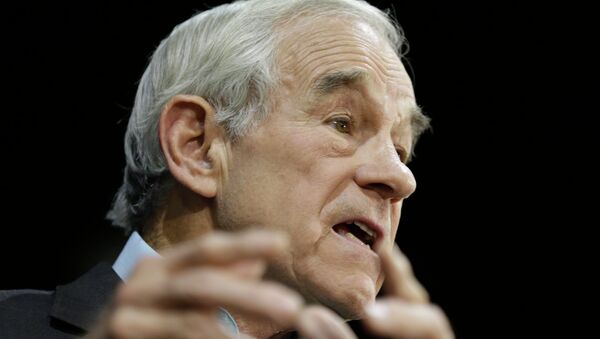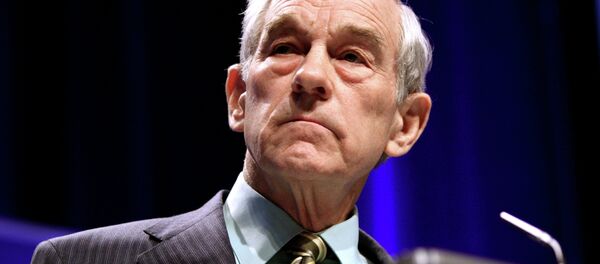According to US Treasury Secretary Jack Lew, the United States will reach its borrowing limit on November 3. While Congress typically increases that amount, a political showdown between Republicans and Democrats could stop that from happening.
But while some – including Secretary Lew – have urged for bipartisan support to lift the debt ceiling, former Texas Representative Ron Paul has a different suggestion.
"Cutting up its credit card is the only way to make Congress reduce spending," Paul writes in his column for the Ron Paul Institute.
"Anyone who doubts this should listen to the bipartisan whining over how sequestration has so drastically reduced spending that there is literally nothing left to cut," he writes. "But…sequestration has only reduced spending from $3.6 trillion to $3.5 trillion.
"Only in DC would a less than one percent spending reduction be considered a draconian cut."
While government agencies have been forced to reduce spending in the face of Congressional demands, Paul points out that many have found a way to continue business as usual, using loopholes called Overseas Contingency Operations (OCO) accounts.
"OCO spending is classified as ‘emergency’ spending so it does not count against the spending limits, even when OCO is used for items that do not fit any reasonable definition of emergency."
But a failure to put a limit on Washington’s wallet could plunge the United States into an economic crisis.
"Continuously increasing spending will lead to rising inflation as the Federal Reserve tries to monetize the ever-increasing debt. This will eventually lead to a serious economic crisis," Paul writes. "When the crisis occurs, Congress will have no choice but to cut spending.
"The question is not if, but when and under what circumstances, spending will be cut."
Paul recommends gradually reducing spending on welfare programs "in a manner that does not harm those dependent on federal programs." Putting a cap on America’s debt may be the only way to convince partisan ideologues to act.
Democrats remain "incapable of making principled arguments against welfare and entitlement programs," while Republicans have shown "their unwillingness to oppose a foreign policy of perpetual war," meaning they will "always cave in to the war hawks’ demands for ever-higher military budgets."
"…Supporters of liberty will not win the political battle over government spending on welfare and warfare until we win the intellectual battle over the role of government," Paul writes.
"Those of us who know the truth must do all we can to spread the ideas of liberty."





